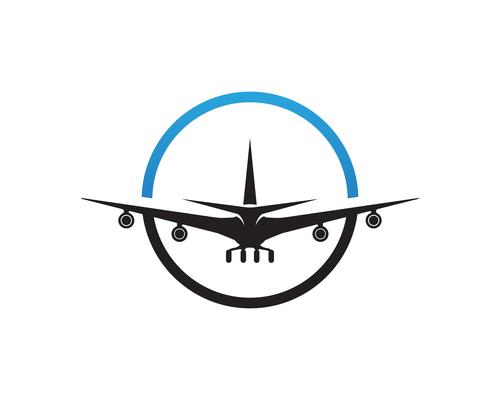Australia is set to implement significant changes to its student visa application process starting July 1, 2024. These updates aim to streamline procedures and discourage ‘visa hopping’ among temporary visa holders. Whether you’re planning to study, work, or visit Australia, understanding these changes is crucial for navigating the visa landscape effectively. Everything About Australia Rules
Understanding the Changes
From July 1, 2024, holders of certain visas, such as Visitor and Temporary Graduate visas, will no longer be able to apply for Student visas while residing in Australia. This policy shift ensures that those genuinely intending to study in Australia apply for their student visa from offshore, outside Australia’s borders. Applications lodged within Australia before this date will continue to be processed under existing rules, providing a transition period.

Impact on Temporary Graduate Visa Holders
Temporary Graduate Visa (Subclass 485) holders are significantly affected by the new regulations. Previously, many used this visa as a pathway to extend their stay, but with the new rules, they must reconsider their options post-study. The Australian government advises exploring skilled job opportunities leading to employer-sponsored visas or permanent residency, aligning with long-term economic and immigration goals.
Challenges and Opportunities for Visa Holders
Transitioning from temporary to permanent residency is a key consideration. According to the Grattan Institute’s ‘Graduates in Limbo’ report, many Temporary Graduate Visa holders opt to return to study upon visa expiration, highlighting Australia’s visa system complexities and diverse pathways for extended stays.
Key Visa Subclasses Affected
Several visa subclasses are directly impacted, including Subclass 485 (Temporary Graduate), Subclass 600 (Visitor), Subclass 601 (Electronic Travel Authority), Subclass 602 (Medical Treatment), Subclass 651 (eVisitor), and Subclass 988 (Maritime Crew). Other subclasses also restrict in-country Student visa applications, including Subclass 403 and Subclass 995.
Application Process and Requirements
Applying for a Student Visa from Offshore:
To study in Australia under the new rules, applicants must:
- Prepare necessary documents: enrollment proof, financial capacity, health insurance.
- Apply online via the Department of Home Affairs or a registered migration agent.
- Provide biometric details depending on nationality.
- Meet health and character standards, including medical exams and police clearances.
- Receive Visa Grant upon approval, detailing entry and stay conditions.
Bridging Visas and Considerations
Offshore Student visa applicants cannot obtain Bridging visas while awaiting decisions. Planning travel and accommodation accordingly is crucial to comply with Australian immigration laws.

Educational Opportunities and Immigration Pathways
Australia offers diverse educational opportunities across fields. International students significantly contribute to Australia’s education sector and economy, enriching its cultural fabric. Understanding available immigration pathways is crucial for pursuing studies or establishing a career in Australia.
FAQs: Australia’s New Student Visa Rules
When do the new student visa rules in Australia come into effect?
The new rules will be effective from July 1, 2024.
Can I apply for a student visa while in Australia after July 1, 2024?
No, holders of certain visas, including Visitor and Temporary Graduate visas, must apply from outside Australia.
What happens if I applied for a student visa before July 1, 2024?
Applications lodged within Australia before this date will continue to be processed under existing rules.
How are Temporary Graduate Visa holders affected by the new regulations?
Temporary Graduate Visa (Subclass 485) holders can no longer apply for further studies while in Australia. They must apply from offshore.
Can I apply for permanent residency after studying in Australia?
Yes, various pathways, including employer-sponsored visas or skilled migration, remain available post-study.
Which visa subclasses are directly impacted by the new rules?
The affected subclasses include Subclass 485 (Temporary Graduate), Subclass 600 (Visitor), Subclass 601 (Electronic Travel Authority), and others that restrict in-country student visa applications.
Do I need health insurance to apply for a student visa?
Yes, health insurance coverage is a requirement when applying for a student visa.
Can I work while studying on a student visa in Australia?
Yes, student visa holders generally have limited work rights during their studies.
How do I prove my financial capacity for a student visa application?
You need to provide evidence of sufficient funds to cover tuition fees, living expenses, and return travel.
Is there a bridging visa available for offshore student visa applicants?
No, offshore applicants cannot receive a bridging visa while awaiting a decision.
Can I include family members in my student visa application?
Yes, you can include eligible family members such as spouses and children in your application.
What are the English language requirements for a student visa?
You may need to demonstrate English language proficiency depending on your course and education provider.
Are there any exemptions to the offshore application requirement?
As of July 1, 2024, no exemptions have been announced. All affected visa holders must apply from outside Australia.
What are the steps to apply for a student visa from offshore?
Steps include gathering required documents, completing the online application, providing biometric information (if required), and meeting health and character requirements.
Where can I get more information or assistance with my student visa application?
Visit StudentVisaAustralia.com for expert advice on student visas, work permits, or any visa-related queries. Our team is dedicated to helping you navigate Australia’s visa regulations effectively.
Conclusion: Australia’s new student visa regulations prioritize national interests while welcoming international students and visitors. As policies evolve, staying informed and seeking expert advice are crucial for successful visa applications. For more information contact us now.

Disclaimer
This guide is based on current Australian government regulations, subject to change. Consult registered migration agents or immigration lawyers for personalized advice.
Source: www.financialexpress.com
- Cost of MBA in Abroad: Detailed Guide for USA, UK, Australia, Europe, China, and Asia
- Australia’s New Rules for Temporary Graduate Visa Holders
- Navigating Australia’s Updated Student Visa Regulations: A Comprehensive Guide
- Australian Student Visa Financial Requirements Updated: What You Need to Know
Also read:
- UK Study Visa Approved Without IELTS – Even After a 5-Year Study Gap!
- 10 Most Budget-Friendly Countries for Indian Students to Study Abroad
- Discover the Best Time to Visit Canada: A Complete Guide for Your Dream Adventure
- Navigating Post-Study Work Opportunities & Tuition Fees: A New Era for International Students in the UK, US, Canada, and Europe
- Exciting News: Malaysia Extends Visa-Free Entry for Indian Nationals Until 2026!
 Need expert Advise ?
Need expert Advise ?
